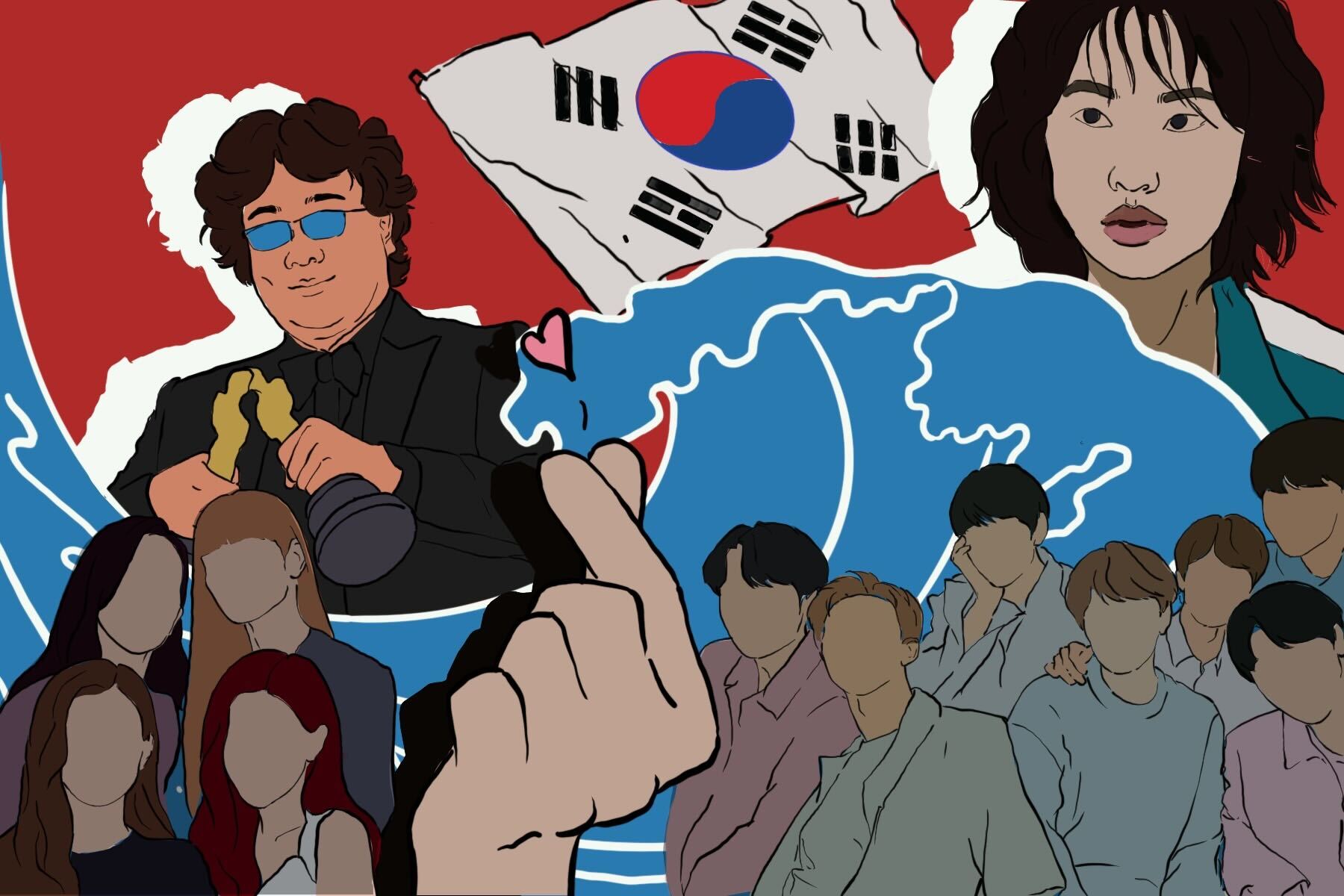To talk about original and unoriginal art and stories is essentially to ask yourself what art is in the first place — an eternally relevant question, but one that’s unlikely to leave you with an answer. In a lot of ways, every story finds its seed in something else, whether it be a movie the artist saw as a kid or a current event they’re watching on TV. Their story can be the most outrageously creative thing you’ve ever read or seen, but that doesn’t mean it exists in a vacuum. It was at least partly inspired by other works or experiences. Even so, it’s obvious that many stories are much more original than others. A by-the-book adaptation of another story is probably very different from, say, a David Cronenberg movie in terms of original ideas.
When you bring this idea of originality and its importance to a discussion of Hollywood, you’re opening up a whole other can of worms. Hollywood has a long history and a massive, complicated reputation that is inherently tied to American ideals and economic values. Time and time again, the industry has proven its ability to adapt to changes in technology and politics, though with the looming threat of streaming services, its future is beginning to look more uncertain. Nevertheless, Hollywood’s reign is far from over.
It’s a mistake to say that Hollywood has become less original over the last 10 or 15 years. In truth, the industry giant has never been known for freshness or even valued originality as a part of the moviemaking process. As far back as 2002, the top three highest-grossing films at the Worldwide Box Office have almost always been sequels or adaptations, meaning that the world’s most financially successful films are usually built on someone else’s idea. The near billion dollars that Universal Pictures has made from “Jurassic World: Dominion,” which came out earlier this year, is really all thanks to Michael Crichton, the author of the book that “Jurassic Park” is based on and the co-writer for the screenplay of the original movie. If you extend this idea to “Star Wars,” Marvel and DC movies, you might end up with a headache.
Hollywood also has a longstanding habit of remaking foreign films for American audiences, particularly films from Asia. “The Magnificent Seven,” a classic Western from 1960 (later remade again in 2016), was remade from Akira Kurosawa’s “Seven Samurai”; “The Departed,” Martin Scorsese’s 2006 gangster movie starring Leonardo DiCaprio and Matt Damon, was remade from the Hong King film “Internal Affairs”; “The Ring” was remade from one of the most successful Japanese horror movies of all time, “Ringu”; and multiple Godzilla movies have been put out by Hollywood over the years, all owing their relative success to the original Godzilla film, made in Japan in 1954.
This isn’t an exhaustive list, but it’s more than enough to demonstrate the pattern that Hollywood has of finding successful, fresh stories in Asian cinema and remaking them for American moviegoers, most of whom wouldn’t know about the original films.
All of this is to say that remakes, sequels and adaptations are in Hollywood’s blood and bones, perhaps even more integral to the success of the industry than the more original movies that they’ve released. What’s more, audiences are and will probably always be perfectly comfortable with these kinds of movies and franchises. They may not come away from a movie like “Star Wars: The Rise of Skywalker” with their heartstrings tugged or their perspectives changed, but to Hollywood executives, that’s irrelevant. The point is that they paid to see these movies in the first place, and they’ll continue to do so. Everything original is challenging; everything derivative is comfortable — and human beings strive for comfort. The execs know this.
Like many other cinephiles, I don’t always turn to movies to be comforted. More often than not, I watch a film to experience an interesting story that can resonate with me on an emotional level and that will push me to think about something in our world a little differently. I don’t go to Hollywood movies for this kind of experience and haven’t for a long time. It wasn’t until I dove into the movies and TV series of South Korea that I actually regained some hope for the survival of original storytelling within a major film industry.
Just 20 years ago, South Korea was barely recognized for its entertainment media, but in the last decade or so, there has been a huge wave of Korean films, television series and music — called the K-wave, or “Hallyu” — that has spread all over the world. From the intense following of K-pop artists to the widespread success of “Parasite” at the Oscars and beyond, South Korea has become a leading country in terms of producing critically successful entertainment content. One of the most recent examples of this success is the global popularity of “Squid Game,” a Korean series on Netflix that, if you’re online, you have undoubtedly heard of already. In the first 28 days after it was released, Netflix announced that the show had a total of 1.65 billion hours of viewing — an astonishing number that officially makes “Squid Game” Netflix’s most popular show of all time.
I had of course seen “Parasite” back in 2019 when it completely took the movie world by storm, but besides watching a few of Bong Joon-ho’s other films, I didn’t explore many other movies or any shows from South Korea until a few months ago. A friend suggested I try a K-drama and my eyes were opened to this whole other world of cinematic storytelling, where creators truly prioritize the narrative and build their stories around interesting premises instead of franchises or characters that already exist. One reason for this may be the fact that the Korean film industry is relatively new compared to an empire like Hollywood, meaning they don’t have a long history of big hits that might be rebooted because of nostalgia. The industry really only began in the 1990s, when Korea’s military regime ended and censorship laws subsided considerably.
Another key difference from Hollywood is that since the ‘90s, the Korean government has given a lot of support to the country’s film and TV industry through various means. In 1993, the government started enforcing a screen quota for domestic films, so theaters were obligated to screen domestic movies for at least 146 days per year. With this move, they protected Korean films from their biggest competitor — Hollywood movies.
Later, in 1999, the government launched the Korean Film Council, a self-administered entity that works with filmmakers and supports the production of Korean films. There are other ways the Korean government has facilitated the growth of the nation’s film industry, including some regulations about censorship and film cuts, but their decision to implement a screen quota and the creation of the KOFIC are two of the most significant examples of the government’s support. One could argue that, in terms of industry practices, this support is what most clearly differentiates the Korean film industry from a system like Hollywood.
You could take any number of positions on how and why Korean films and series feel so much more original than the content that Hollywood and the American TV industry have produced. But I would suggest that one of the most key reasons is the guaranteed support from the government. If a Korean movie flops, the creators and producers are not necessarily going to end up dead in the water. This active support system encourages filmmakers to take more risks and not focus too heavily on profit, which the mainstream American film industry tends to do.
There’s no reliance on established characters or fictional universes, nor any throwbacks to previous films that are guaranteed to pull in audiences. (There are so many popular American movies that fit these descriptions that you don’t know where to start.) The amazing thing — especially to an American viewer like myself — is that even with a completely fresh storyline and cast of characters, these films and series gain a lot of popularity, and of course, they more often than not achieve critical success. Another thing that really makes K-dramas special is that the majority of them only have one season, usually with somewhere between 10 and 16 hour-long episodes. Not all of them end well, but there is something refreshing about shows with definite ends in an era when many American series go on for years and even decades.
All of this is to say that yes, Korean movies and series do seem to maintain more creative freedom than many of the American films and shows that are being pushed out year by year, particularly ones by the biggest film companies and streaming services. In an ideal world, the most powerful figures in Hollywood would look to the critical and commercial success of a show like “Squid Game” and take extensive notes. Ultimately, though, the American and Korean film industries are simply structured differently. These industries have separate histories, cultural legacies and goals for the future of filmmaking in each country.
Hollywood has and always will be profit-based, while the Korean industry — so far, at least — seems to have different end-goals in mind. But this doesn’t mean we need to keep watching what Hollywood chucks at us. We can turn to other film industries and other forms of moviemaking that deliver the quality of story and production that audiences deserve, and one such industry is that of South Korea. After so many years of Marvel phases and multiverse expansions, many viewers are bound to get tired of the nonstop remaking, rebranding and relaunching that Hollywood is known for. And when they do, South Korea is ready to be a leader in both creative and entertaining cinematic storytelling.

















